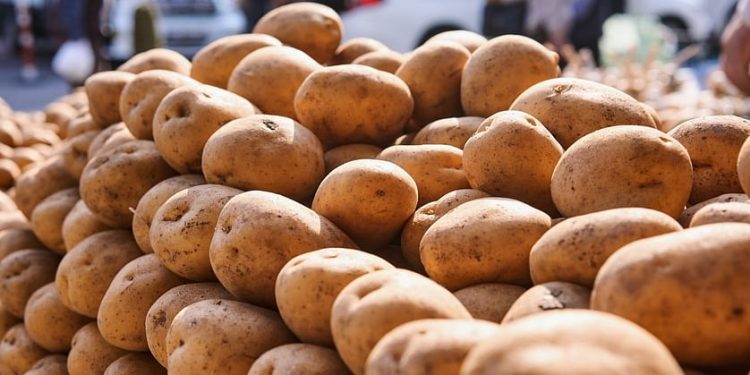#PotatoPrices #AgriculturalMarkets #WeatherImpact #BrazilAgriculture #SupplyChain #ClimateResilience #FarmingChallenges
The potato market in Brazil has witnessed a notable turnaround in recent weeks, with prices rebounding following a prolonged period of decline. The resurgence in prices can be attributed to the relentless onslaught of heavy rains across the southern region of the country, which has also affected potato-producing regions in neighboring Argentina and Uruguay.
According to recent data, the average wholesale prices of potatoes stood at BRL 110.29 per 25 kg sack (equivalent to USD 22.17) in São Paulo (SP) last week, marking a significant 7.38% increase compared to the previous week. Similarly, prices soared to BRL 110.61 per sack (USD 22.23) in Rio de Janeiro (RJ), reflecting a substantial 12.38% surge. However, the scenario was slightly different in Belo Horizonte (MG), where prices witnessed a decline of 8.47%, reaching BRL 95.09 (USD 19.11) per sack.
The spike in prices at the SP and RJ wholesale markets can be directly linked to the adverse weather conditions experienced in Guarapuava (PR) and Água Doce (SC), key potato-growing regions. These conditions not only hampered harvesting activities but also constrained the overall potato supply. Conversely, the wholesale market in BH, which primarily sources its produce from Bahia, observed an uptick in supply, resulting in a devaluation of prices.
Of particular concern is the consistent reports from wholesalers regarding the inferior quality of potatoes originating from production centers in Minas Gerais. Many of these potatoes exhibit skin blemishes attributed to prolonged exposure to excessive heat.
Looking ahead to the coming week, forecasts of continued rainfall in the mining regions raise concerns about further disruptions to harvesting activities and potential supply shortages.
The recent fluctuations in potato prices underscore the vulnerability of agricultural markets to climatic variability. While adverse weather conditions have led to short-term price spikes, they have also highlighted the importance of resilience and adaptation strategies within the agricultural sector. Farmers, agronomists, agricultural engineers, and scientists must remain vigilant and proactive in mitigating the impacts of such challenges to ensure the stability and sustainability of potato production in Brazil.






